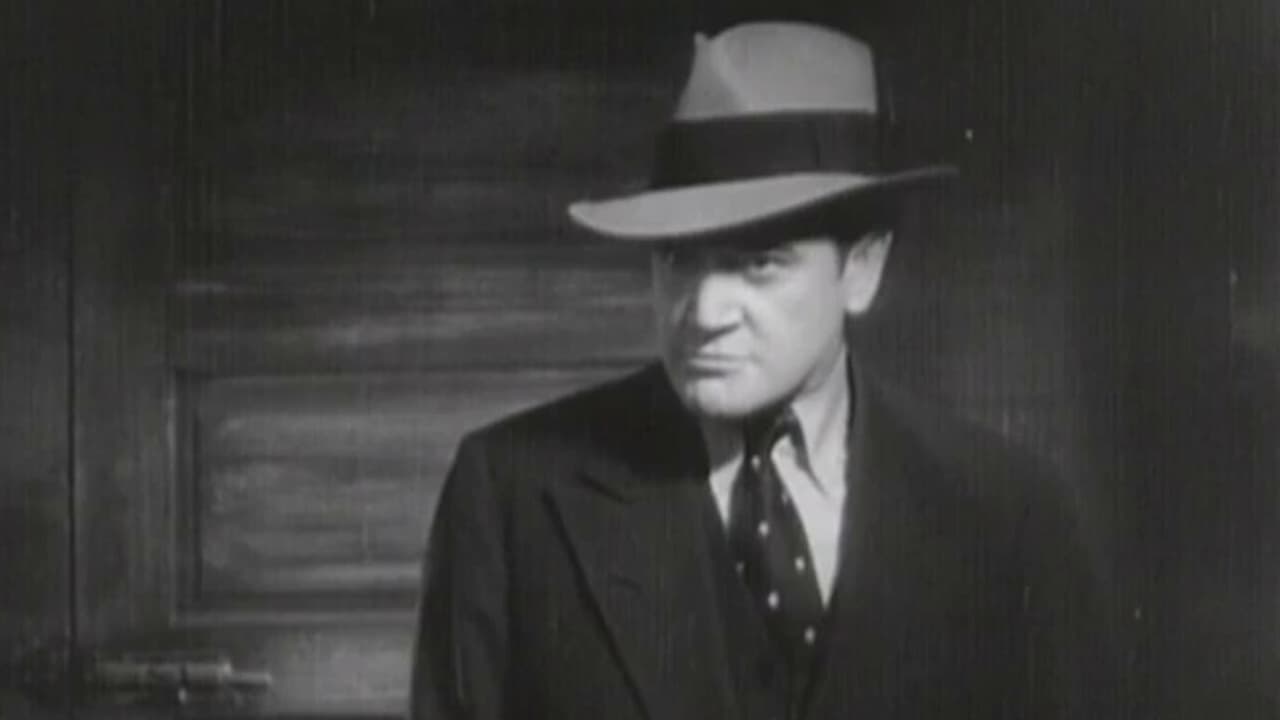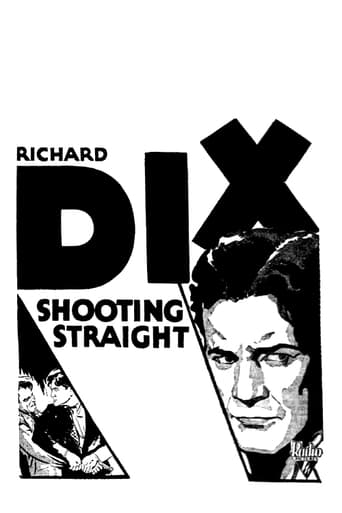

Best movie of this year hands down!
... View MoreThis is How Movies Should Be Made
... View MoreIt's the kind of movie you'll want to see a second time with someone who hasn't seen it yet, to remember what it was like to watch it for the first time.
... View MoreThere is, somehow, an interesting story here, as well as some good acting. There are also some good scenes
... View MoreWhile "Shooting Straight" is a film I might have scored a bit lower had it been made a few years later, I'm giving it an 8, as for its time it's a very good movie. Some of the predictability and familiar plot elements only became more familiar in later films.The film begins with the professional gambler, Larry Sheldon (Richard Dix), getting into a fight. Soon the guy is found dead and Larry and the cops assume the victim had died from the beating Larry gave him...and Larry is on the lam. However, the train he's on has a wreck and Larry wakes up two weeks later! The folks caring for him think he's a preacher and they are honored to have such an esteemed man staying with them! Plus, it soon becomes obvious that Doris has fallen for him...and vice-versa. However, a problem soon arises--a two-bit chiseling gambler, Ace Martin, is holding a fortune in gambling notes...notes belonging to Doris' stupid brother. So Larry, now known as Reverend Walters, has decided to stick around and help Doris and her brother out of this mess...and this means a confrontation with the very dishonest and evil Ace.This is a very enjoyable film...but it's not a big surprise because Dix was a really good actor--one of the better ones of the day. He not only does a great job but the director did an amazing thing--making the most violent fight scene I think I've ever seen from this era! It's exciting and rough...and sure looks real. Overall, an interesting film with an exciting finale.
... View MoreRichard Dix was one of those lucky players with a deep a resonant voice that easily made the transition to sound. Usually strong willed heroes occasionally he went over to the dark side. Here he kind of straddles the fence as a gambler on the run from the NYPD on a murder rap.In a small whistle stop town he's mistaken for a well known reformer type and taken in by the local preacher James Neill. In his new guise but past skills, Dix turns out to be just the man to rid the small town of a bad element. He also wins the heart of Neill's daughter Mary Lawlor when he saves her from a fate worse than death. Her brother William Janney has run up some really big gambling debts in Matthew Betz's clip joint and Betz is willing to let Lawlor redeem them in kind if you get my drift. Very Victorian, the cad.That Victorian type mindset that permeates this film plus a really bad and contrived cop out ending prevents Shooting Straight from being a great film. But it's reasonably entertaining.
... View MoreThis one is still with us, and not in bad shape either. It was Richard Dix' third film for RKO, where he was a leading man from 1929 to 1943. This is also the film he did immediately preceding Cimarron. "Cimarron" was my first exposure to Dix, and probably the film for which he is most remembered since it won the Best Picture Oscar of 1930-1931 and won Dix an Academy Award nomination for Best Actor. To me, that's a shame, because it is probably his hammiest performance, and the film has not aged well at all, although it does retain a certain early talkie charm. Imagine my surprise, several years later, to see some of his more seldom seen films and discover that Dix was a natural in the talkies and a natural before the camera with a great screen presence.This film sports another fine performance by Dix, this time as a gambler on the run from the law. Dix plays professional gambler Larry Sheldon whose close friend is gunned down by gangsters on a rainy night. Sheldon knows immediately who did it and doesn't care about the repercussions when he marches right up to the hideout of the gangster he knows that did it and strangles him to death. Now he's on the run from the police, so he takes a train to the middle of nowhere. On the train he meets a parson of sorts whose mission in life is to reform gangsters, and the two men have a short conversation. The train carrying them both derails, and Sheldon is mistaken for the man actually killed in the wreckage, the reformer Ted Walters, with whom he spoke just a short time before. He's nursed back to health by the daughter of a town reverend, Doris Powell (Mary Lawlor), and is invited by the reverend to stay in the town and help crusade against the bad elements there, most prominently a gambling joint that has been taking time and money away from the local men folk. So now Sheldon has a choice - does he move on, or does he stay? And if he stays, does he simply use his cover to take this rural gambling establishment away from the current gangster that owns it and pick up where he left off in the city, or does he actually turn over a new leaf and become a reformer? Complicating matters is that the reverend's son owes the gambling house $3500, that the gangster who runs the place is using the leverage of this debt to try to put the moves on his sister Doris, and that Sheldon is starting to develop a soft spot for Doris himself.Dix is great in this part as he plays a gangster with conscience here - quite different from the type Cagney and Robinson played over at Warner Brothers. He doesn't enjoy violence, it is simply an unpleasant byproduct of what he does enjoy - the thrill of gambling and the strategy involved in outsmarting an opponent while doing so.The only other performer here you'll likely recognize is Robert Emmett O'Connor, who is being typecast here as he was in so many early talking films as the Irish cop. Mary Lawlor had only two film roles, and this is one of them. The other one was in "Good News". At that point she disappeared from view altogether. She is pretty enough and gives a good enough performance as the pure country girl caught between loyalty to her brother and the repulsion she feels towards the gangster that wants her, she just didn't do anything with enough distinction to set her apart from hundreds of other early talkie actresses. One of my favorites in this film was the actor playing Ace Martin, the gambling house proprietor that has the hots for young Doris. He perfectly portrays slimy confidence with the ladies and false concern, and he isn't nearly as smart or attractive as he thinks. He is the perfect villain.Do note that in my description of the plot I deliberately got one key point wrong, but I had to do this, because the fact that the audience believes that this is the actual plot is what the surprise ending rests upon. Warner Brothers should own the rights to this one since it is an RKO film, so why it has never been televised on Turner Classic Movies I do not know.
... View MoreRichard Dix has always been one of my favorites, so it's no surprise that I was elated when I literally stumbled across this title, taken from 16mm. While the RKO logo and main title card are missing, the cast and tech credits are intact. It's a pretty pedestrian story of "Lucky" Larry Sheldon, a Manhattan gambler and man about town who is always locking horns with his main rival "Ace" Martin, nicely played by Matthew Betz. But when Martin murders Lucky's partner, Sheldon seeks revenge. Thinking he's murdered a man, he flees and takes up residence in a small town under an assumed name until he finally has to dispatch Martin, who's also moved there and runs a crooked gambling hall. One of the highlights of the film is a knock-down, drag-out fight in a locked room. Director George Archainbaud employs some interesting shots taken from an overhead camera to give the illusion that we're viewing the fight from a seat on the ceiling. All in all not a bad film--not one of Dix's best, nor worst. But certainly worth a look if you can find it, if for no other reason than its rarity. Always nice to come across a treasure like this. Bob Connors.
... View More